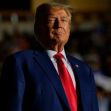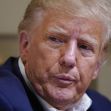In the federal criminal case against Donald Trump, the Republican presidential nominee, prosecutors have filed a superseding indictment after the U.S. Supreme Court granted Trump substantial immunity from prosecution for certain actions during his presidency. The new indictment, presented to a fresh grand jury that had not previously heard evidence in the case, aims to align the government’s charges with the Supreme Court's recent decision.
A superseding indictment is a legal term used in criminal law. It refers to a new indictment that replaces a previous one, often including additional charges, updated allegations, or new defendants. A superseding indictment is typically issued by a grand jury after further investigation or as more evidence comes to light, allowing prosecutors to refine or expand the charges against the defendant.
The case against Trump centers on allegations that he led a conspiracy to overturn the results of the 2020 presidential election, which culminated in the violent attacks on the U.S. Capitol on January 6, 2021. Special counsel Jack Smith, who has been leading the investigation, accuses Trump of disenfranchising millions of voters through a series of actions and statements that allegedly fueled the insurrection.
However, the Supreme Court, in a ruling authored by Chief Justice John Roberts, provided Trump with broad immunity from prosecution for actions that were deemed "core" to his official duties as president. This ruling effectively shielded Trump from certain charges related to his alleged misuse of the Justice Department to advance baseless claims of election fraud.
Prosecutor Molly Gaston described the new indictment in a court filing, reflecting the Justice Department's efforts to comply with the Supreme Court's decision. Gaston indicated that the Department of Justice (DOJ) would not require Trump to make an in-person appearance for arraignment on the new charges. Instead, the DOJ plans to work with Trump’s legal team to determine the best way to proceed, with an update expected by Friday.
The superseding indictment continues the legal battle surrounding Trump’s actions related to the 2020 election. Despite the Supreme Court’s ruling, which carved out protections for Trump’s official duties, the new indictment signals that prosecutors remain committed to pursuing charges related to actions that fall outside those protections.
Trump has consistently denied all charges, framing the legal proceedings as a "witch hunt" aimed at undermining his political career. In a recent statement on his social media platform, Truth Social, Trump dismissed the superseding indictment as "ridiculous" and called for its dismissal. His legal team argues that Trump’s statements and actions leading up to January 6 were legitimate inquiries into potential election fraud.
The Supreme Court's decision has left open several critical questions that the trial judge in D.C., Judge Tanya Chutkan, will need to address. These include how to handle the remaining charges and the extent to which Trump’s immunity applies to the various aspects of the case.






